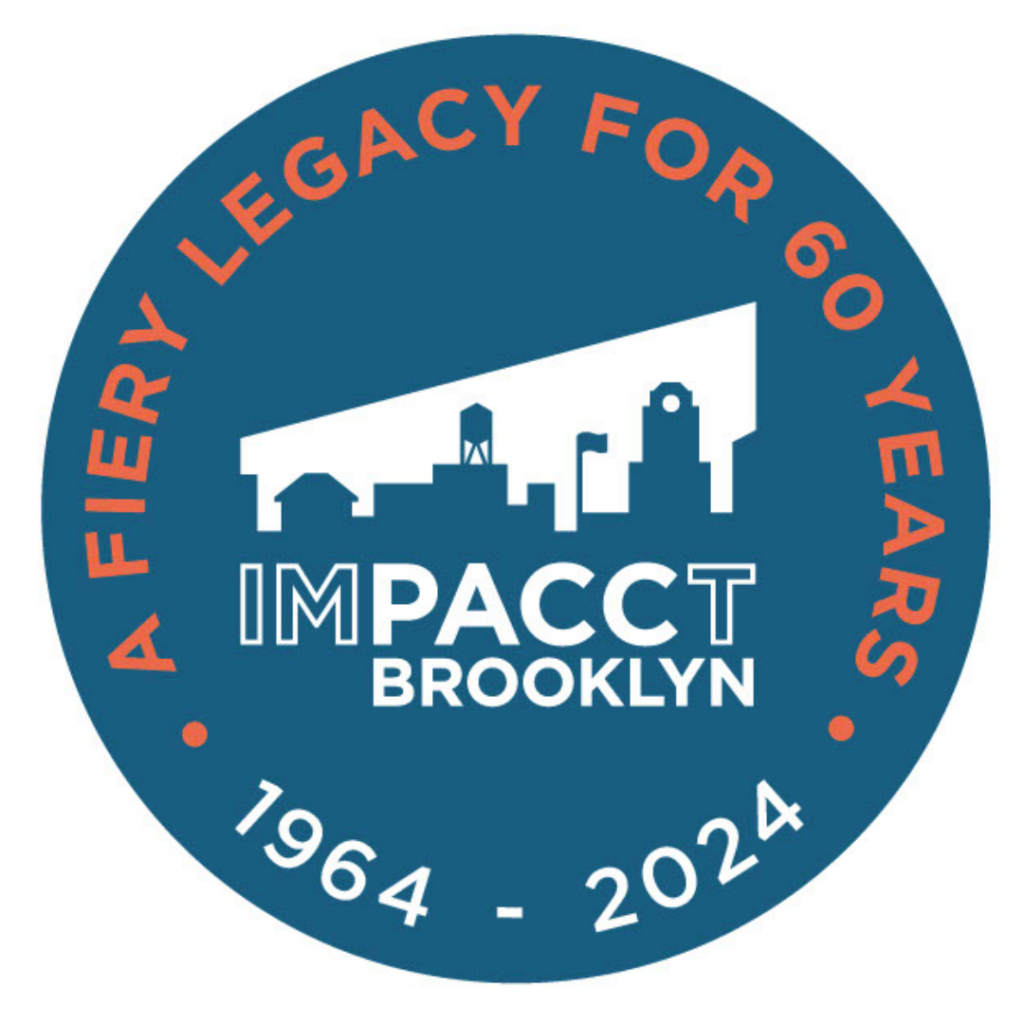WHAT IS THE COMMUNITY REINVESTMENT ACT?
You might not be familiar with the Community Reinvestment Act (CRA), but it’s a vital piece of legislation that’s improved your life in more ways than one, and it’s in grave danger.
A civil rights law enacted in 1977, the CRA is a response to systemic redlining, discrimination, and disinvestment. The law is written to ensure that banks address the needs of all communities they serve and are compelled to lend and provide service equitably, with a focus on low- and moderate-income neighborhoods.
The CRA has impacted your community by making banks:
- open branches in lower-income areas;
- provide affordable mortgages to help you buy your first family home or stay in your long-term home;
- give loans to help your favorite small businesses expand;
- finance affordable housing and other community services;
- fund grants to nonprofits like IMPACCT Brooklyn for community services.
WHY DOES THE COMMUNITY REINVESTMENT ACT MATTER TO OUR COMMUNITIES?
The CRA contributes to safe and sound lending that’s affordable for borrowers. To read more about this, click here.
WHAT ARE THE PROPOSED CHANGES, AND WHY ARE THEY BAD NEWS?
Last December, two of the three agencies that oversee CRA regulation – the Office of the Comptroller of the Currency and Federal Deposit Investment Corporation – proposed 239 pages of sweeping changes to the CRA.
While there are some bright spots in the proposed changes, including an emphasis on long-term lending and investments, double credit for affordable housing equity lending and an expansion of assessment criteria for banks, a majority of the proposed changes will weaken the CRA as a whole and put low-income communities of color at risk.
The biggest change is the pivot to an aggregate quantitative balance sheet ratio to measure an institution’s compliance. Once upon a time, CRA compliance was measured via three distinct assessment criteria: lending, which counted for 50% of the CRA examination; services, which counted for 25% of the CRA examination; and investment, which counted for 25% of the CRA examination. However, going forward, all CRA-qualifying activity would be measured by number and dollar volume and used to calculate a ratio of participation for the bank’s entire branch and each assessment area.
In layman’s terms, this approach allows banks to meet their CRA standards through one type of activity (say, lending), and neglect other activities (say, investing). This would be a major blow to equity investment in a number of programs intended to spur investment throughout our communities and improve our standard of living, including: low-income housing tax credits, opportunity zones, new markets tax credits, and historic tax credits.
Other concerns include:
- an expansion of the list of qualifying activities to include “essential infrastructure” lending – water, wastewater, electrical grind, etc. – to count for full CRA credit regardless of proximity to low-and-medium-income households;
- Determine what percentage of deposits constitute an acceptable level of qualifying CRA activities;
- Expected periodic adjustment of the benchmarks creates notable uncertainty;
WHAT CAN WE DO TO SAVE THE COMMUNITY REINVESTMENT ACT?
The OCC is only giving us sixty days to comment on the proposed changes to the Community Reinvestment Act, so everyone in community development needs to make their voices heard before March 9th!
To recap: these proposed changes will weaken the Community Reinvestment Act and put low-income communities of color at risk. Banks must be held responsible to contribute to the greater good in ways that create equitable results for disadvantaged communities. Taking the teeth out of the Community Reinvestment Act is an attack levied against the rights of those who need its protection the most, so go to ANHD’s website to download a sample letter and submit it to the OCC to let them know how important the law is before the March 9th deadline!



